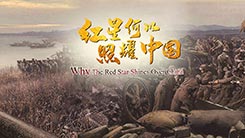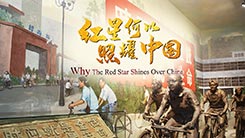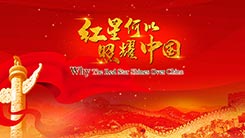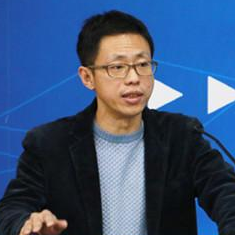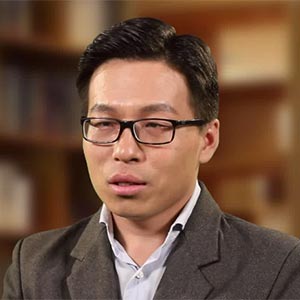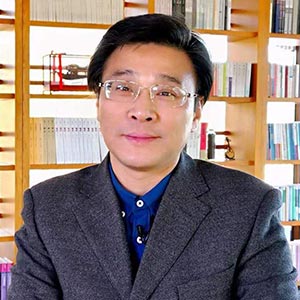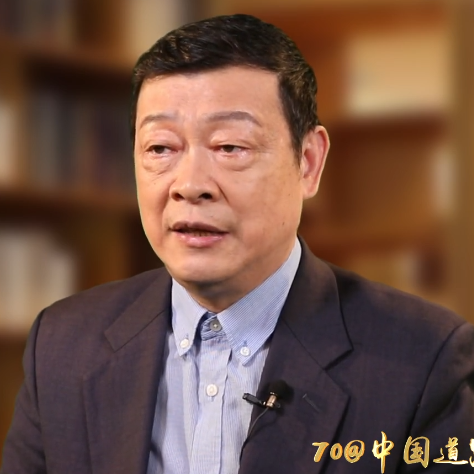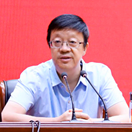伟大远征,信仰和人民的力量
马克思主义哲学认为,事物发展的方向是前进的,而事物前进的道路则是曲折的。这一观点对信仰马克思主义的中国共产党而言同样适用。
1933年,中国共产党的敌人蒋介石调集100万军队,亲任总司令,并且聘请一大批德国军事专家做顾问,拟订作战计划,还用美国、英国的巨额贷款购买了大批军火,极大地提升了部队的装备水平。
这一切都是为了应对时年只有12岁的中国共产党。
而此时,毛泽东失去了对军队的领导和指挥权,实际领导人博古对共产国际军事顾问李德十分依赖,但李德是一个外国革命者,他完全不了解中国的实际情况,只是照搬苏联红军正规战争的经验,这决定了战争的结果只能是惨败。
中国共产党领导的军队最终被迫进行战略转移,这场战略转移被称为“长征”。后来证明,艰苦卓绝的长征使这支队伍浴火重生。长征途中,中国共产党的军队一路打一路走,摆脱了蒋介石军队的围追堵截。
衣衫褴褛、屡遭重创的红军血战湘江、四渡赤水、强渡大渡河、飞夺泸定桥、翻过皑皑雪山、走出茫茫草地,最终汇聚成滚滚“红”流,击败敌人,建立了新中国。
上个世纪60年代初,美国记者埃德加•斯诺问毛泽东:“你一生中最黑暗的时刻是什么时候?”毛泽东回答说,那是在1935年的长征途中,在草地与张国焘之间的斗争。
当时,一、四方面军会合后,张国焘拒绝执行中央的北进方针,坚持南下,闹分裂。为顾全大局,也为了尽快化解红军的不利处境,毛泽东只得带领中央机关和红三军团连夜北上。
待情绪激动的四方面军副参谋长李特和一队全副武装的骑兵赶来,毛泽东表现得十分冷静,对他们说:你们实在要南下也可以,相信以后总会有重新会合的机会。“我们都是红军,都是共产党,都是一家人,一家人不打一家人嘛!现在愿意北上的跟党中央走,愿意跟张国焘的可以回去。以后我们还会在一起的。”
毛泽东说:“长征是历史纪录上的第一次,长征是宣言书,长征是宣传队,长征是播种机。”面对正义和邪恶两种力量的交锋、光明和黑暗两种前途的抉择,中国共产党始终团结群众、依靠群众,以自己的模范行动,赢得人民真心支持,广大人民群众是长征胜利的力量源泉。长征途中,中国共产党还推动了抗日民族统一战线的形成,中国人民群众深刻认识到,中国共产党是为人民谋利益的党,红军是人民的军队。长征的胜利,宣传了中国共产党的主张,播撒下革命的火种,扩大了中共的影响,使中共与人民的联系更加紧密。
“长征”成为中国共产党的精神符号。中国共产党从中提炼出了“长征精神”,“长征精神”是什么?
2016年10月,在纪念红军长征胜利80周年大会上,中共中央总书记习近平对“长征精神”做了解读:“伟大长征精神,就是把全国人民和中华民族的根本利益看得高于一切,坚定革命的理想和信念,坚信正义事业必然胜利的精神;就是为了救国救民,不怕任何艰难险阻,不惜付出一切牺牲的精神;就是坚持独立自主、实事求是,一切从实际出发的精神;就是顾全大局、严守纪律、紧密团结的精神;就是紧紧依靠人民群众,同人民群众生死相依、患难与共、艰苦奋斗的精神。”
回望长征,可以清晰地看到,长征不仅是一次人类精神和意志的伟大远征,也是一段中国共产党领导中国人民寻求中华民族复兴的伟大征程。接续历史,现在的中国,每一代人都有每一代人的长征路,每一代人都要走好自己的长征路。
The Long March, Faith and People Power
Marxist philosophy holds that the future is bright while the road ahead is tortuous.This also applies to the Communist Party of China(CPC) which believes in Marxism.
In 1933, Chiang Kai-shek, the then rival of the CPC,mobilized1 million troops, acted as the commander-in-chief himself, and hired a large number of German military experts as consultants to draw up war plans. He also purchased large quantities of arms with huge loans from the United States and Britain, greatly improving the equipment performance of his troops.
All this was supposed to fight against the then only 12-year-old CPC.
At that time, Mao Zedong lost his leadership and command of the army. The actual leader Bogu, also known as Qin Bangxian, relied heavily on Li De (Otto Braun), the military adviser from the Communist International. However, Li was a foreign revolutionary. He did not know the actual conditions in China at all, but only borrowed the regular warfare experience from the Soviet Red Army, which led to the defeat of the war.
The army led by the CPC was finally forced to carry out a strategic transfer, known as the "Long March."
It was later proved that the arduous Long March revived the army.During the Long March, the CPC's army fought all the way, and finally broke through encirclement by Chiang's troops.
The ragged and hard-hit Red Army fought bitterly at the Xiangjiang River, made four crossings of the Chishui River, fought their way across the Dadu River, and seized the Luding Bridge. The army climbed over snow-capped mountains, trekked across vast grasslands, and finally joined forces to defeat the enemy and establish new China.
In the early 1960s, American journalist Edgar Snow asked Mao Zedong, "What's the darkest moment in your life?"
Mao replied that it was the conflict between him and Zhang Guotao in 1935 during the Long March.
At that time, after the First and Fourth Front Armies joined forces, Zhang refused to implement the Central Committee's policy of marching north, insisted on going south, and tried to split the Party and the Red Army.
To see a big picture and to resolve the adversity of the Red Army as soon as possible, Mao Zedong had to lead the central authority and the Third Front Army up the north overnight.
When Li Te,the deputy chief of the Fourth Front Army who was worked up, came together with a team of fully armed cavalry, Mao Zedong showed a very calm expression and said that they could go south and that he believed they would meet again in the future. "We are all from the Red Army, and from the Communist Party of China. We're a big family, and will never fight against each other!
Now anyone who'd like to go north could follow the CPC Central Committee, and the rest could go back with Zhang Guotao. We'll meet again in the future."
Mao Zedong said,"With no precedent in recorded history, the Long March issued a manifesto, spread a message, and planted a seed."
As the opposing forces of good and evil clashed, and a choice had to be made between light and dark, the CPC rooted itself deep among the people, uniting them and relying on them. With its own exemplary actions, the CPC won the genuine support of the people, who became an endless fountain of strength for the victory of the Long March.
During the Long March, the CPC also promoted the formation of the anti-Japanese national united front. The Chinese people deeply realized that the CPC worked for the people's benefits and the Red Army was the people's army.
The victory of the Long March justified what the CPC stands for, sowed the seeds of revolution, expanded the influence of the Party and brought the CPC more closely connected with its people.
The "Long March" has become a spiritual symbol of the CPC.Hence comes the "Long March spirit." What is the "Long March spirit" then?
In October 2016, at a gathering to commemorate the 80th anniversary of the victory of the Long March, Xi Jinping, general secretary of the CPC Central Committee, interpreted the "Long March spirit" as"regarding the fundamental interests of the people and nation above anything else,upholding revolutionary ideals and beliefs, and firmly believing that the cause of justice is bound to succeed;being willing to sacrifice everything for our nation and people when facing difficulties and obstacles;pursuing independence, seeking truth from facts and proceeding from reality; taking the overall situation into consideration, strictly observing discipline and uniting closely; relying firmly on the people, sharing weal and woe with the people, and struggling hard alongside the people."
Looking back on the Long March, we can clearly see that it is not only a great expedition of human spirit and willpower, but also a great journey for the Chinese people to seek the rejuvenation of their nation under the leadership of the CPC.
Following the past footprints, each Chinese generation has its own long march, and each generation should proceed with its own long march.
《红星何以照耀中国》 / 中国网出品
出品人 / 王晓辉
总监制 / 杨新华
总策划 / 蔡晓娟
执行策划 / 蒋新宇
专家顾问 / 陈述 中共中央党校教授 陈中奎 中国人民解放军国防大学副教授
导演 / 仇俊博
编导 / 申罡 时畅 郭泽涵 鲁波 孔竟泽
设计 / 顾榕楠
制作 / 马跃
翻译 / 汪玮 李秀宇
摄影 / 陶世欣 毛欢东
后期 / 于舜源 傅华洋

